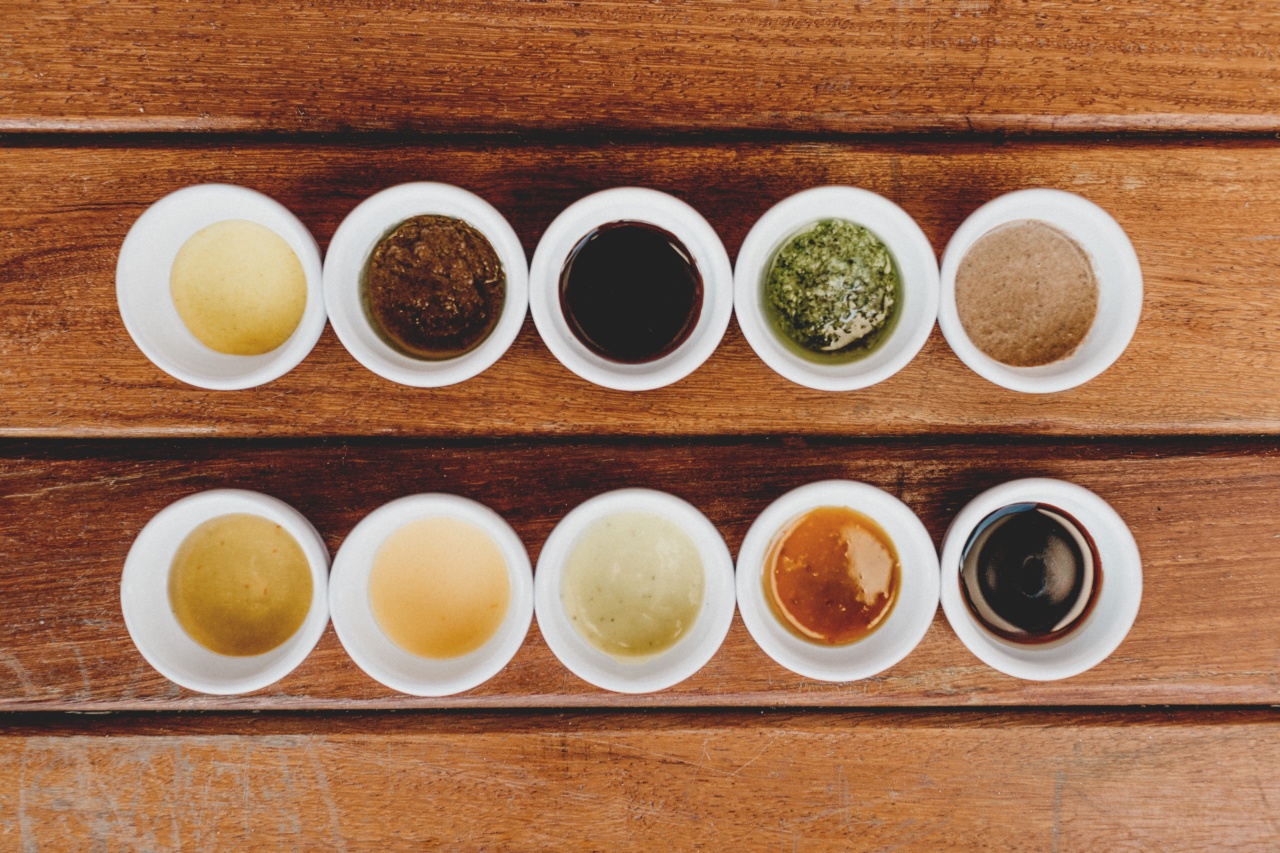Asthma is a chronic respiratory condition that affects millions of people worldwide.
Along with proper medical treatment and lifestyle changes, making conscious food choices can play a significant role in managing asthma symptoms and improving overall respiratory health. Certain foods have anti-inflammatory properties and provide essential nutrients that support lung function, reducing the frequency and severity of asthma attacks.
This article explores the connection between diet and asthma management, highlighting foods that are beneficial for individuals with asthma.
The Importance of a Healthy Diet for Asthma Management
A balanced and nutritious diet is vital for good health, but it becomes even more important for individuals with asthma. The foods we consume have the power to either fuel inflammation or combat it.
Asthma is characterized by inflammation and constriction of the airways, which leads to symptoms like wheezing, shortness of breath, chest tightness, and coughing. By incorporating anti-inflammatory foods and avoiding trigger foods, individuals with asthma can achieve better control over their symptoms and experience fewer asthma attacks.
Foods that Reduce Inflammation
Asthma is closely associated with chronic inflammation in the airways. Consuming foods with anti-inflammatory properties can help reduce inflammation and provide relief from asthma symptoms. Here are some key foods to include in an asthma-friendly diet:.
1. Fatty Fish
Fatty fish such as salmon, trout, and sardines are rich in omega-3 fatty acids. Omega-3s possess potent anti-inflammatory properties, which can help alleviate asthma symptoms.
These healthy fats are known to reduce airway inflammation, decrease the production of inflammatory compounds, and improve lung function. Aim to include fatty fish in your diet at least twice a week to reap their benefits.
2. Turmeric
Turmeric is a spice that contains an active compound called curcumin. Curcumin has powerful anti-inflammatory and antioxidant effects. It can inhibit the production of inflammatory cytokines and reduce airway inflammation.
Adding turmeric to your meals or consuming it as a supplement may help manage asthma symptoms and improve lung health.
3. Ginger
Ginger is another spice with remarkable anti-inflammatory properties. It contains gingerol, a bioactive substance that has been shown to suppress airway inflammation and relax the airway muscles.
Consuming ginger regularly can help decrease asthma symptoms and enhance respiratory function.
4. Berries
Berries like strawberries, blueberries, raspberries, and blackberries are packed with antioxidants and vitamins, making them excellent choices for individuals with asthma.
Antioxidants neutralize free radicals in the body, reducing inflammation and oxidative stress. Adding a variety of berries to your diet can contribute to better lung health and a lower risk of asthma symptoms.
5. Leafy Green Vegetables
Leafy green vegetables like spinach, kale, and collard greens are rich in essential vitamins and minerals, including vitamin C, vitamin E, and magnesium.
These nutrients have antioxidant and anti-inflammatory properties that support optimal lung function and reduce asthma symptoms. Consider incorporating leafy greens into your diet by adding them to salads, smoothies, or stir-fries.
6. Nuts and Seeds
Nuts and seeds, such as almonds, walnuts, flaxseeds, and chia seeds, are excellent sources of healthy fats, fiber, and antioxidants. They can help reduce airway inflammation and improve lung function.
Consider snacking on a handful of nuts or adding them to your breakfast cereal or salads for a nutritious boost.
7. Avocado
Avocado is a creamy fruit that provides a variety of health benefits, including respiratory support. Avocados are rich in monounsaturated fats, which possess anti-inflammatory properties and can help reduce asthma symptoms.
Additionally, avocados are a good source of vitamin E, an antioxidant that supports lung health. Enjoy avocado slices in sandwiches, salads, or as a guacamole dip.
8. Yogurt
Yogurt and other fermented foods contain probiotics, which are beneficial bacteria that promote a healthy gut microbiome.
A strong gut microbiome is crucial for overall immune system functioning and can help reduce the frequency and severity of asthma symptoms. Opt for unsweetened yogurt or kefir to reap the probiotic benefits without added sugars.
9. Garlic
Garlic is known for its distinct flavor and potent medicinal properties. It contains sulfur compounds that have been shown to possess anti-inflammatory and antioxidant effects.
Regular consumption of garlic may help decrease airway inflammation and enhance respiratory health. Add garlic to your meals for flavor and as a natural remedy to support asthma management.
10. Carrots
Carrots are an excellent source of beta-carotene, a precursor to vitamin A. Beta-carotene has antioxidant properties and can reduce airway inflammation.
Including carrots in your diet can help support respiratory health and reduce the risk of asthma symptoms. Enjoy raw carrots as a crunchy snack or incorporate them into your favorite recipes.
Avoiding Trigger Foods
In addition to incorporating asthma-friendly foods into your diet, it is essential to identify and avoid trigger foods that can worsen asthma symptoms. Trigger foods can vary from person to person, but some common culprits include:.
1. Dairy Products
Dairy products like milk, cheese, and ice cream can increase mucus production and contribute to airway inflammation in some individuals.
If you suspect dairy to be a trigger for your asthma symptoms, consider exploring dairy alternatives such as almond milk, soy-based yogurt, or vegan cheese options.
2. Processed Foods
Processed and packaged foods often contain high amounts of artificial additives, preservatives, and trans fats. These ingredients can trigger inflammation and worsen asthma symptoms.
Opt for whole, unprocessed foods whenever possible to minimize exposure to potential triggers.
3. Sulfite-Rich Foods
Sulfites are a group of preservatives commonly found in wine, dried fruits, and processed meats. Some individuals with asthma may be sensitive to sulfites, experiencing symptoms like wheezing and shortness of breath after consumption.
Read food labels carefully and choose sulfite-free alternatives if needed.
4. Foods High in Sodium
Excessive sodium intake can cause fluid retention and lead to increased airway inflammation. Processed and fast foods are often high in sodium.
Reduce your consumption of these foods and opt for fresh, homemade meals seasoned with herbs and spices instead.
5. Alcohol
Alcohol consumption can trigger asthma symptoms in some individuals. Alcohol can cause histamine release, leading to airway constriction and inflammation. Limiting or avoiding alcohol altogether can help manage asthma symptoms more effectively.
Tailoring Your Diet to Your Specific Needs
While incorporating asthma-friendly foods and avoiding trigger foods can be beneficial for most individuals with asthma, it is important to remember that each person’s response to food can vary.
Some individuals may have specific food allergies or intolerances that need to be addressed, which can impact their asthma symptoms. Working with a registered dietitian or healthcare professional who specializes in respiratory health can help create an individualized diet plan that suits your specific needs and ensures optimal asthma management.
In Conclusion
When it comes to managing asthma, the power of food should not be underestimated.
By choosing a diet rich in anti-inflammatory foods and avoiding trigger foods, individuals with asthma can take proactive steps towards reducing inflammation, improving lung function, and experiencing fewer asthma symptoms. Remember to consult with your healthcare provider or a registered dietitian before making significant changes to your diet, especially if you have any underlying medical conditions or take medication for asthma.





























